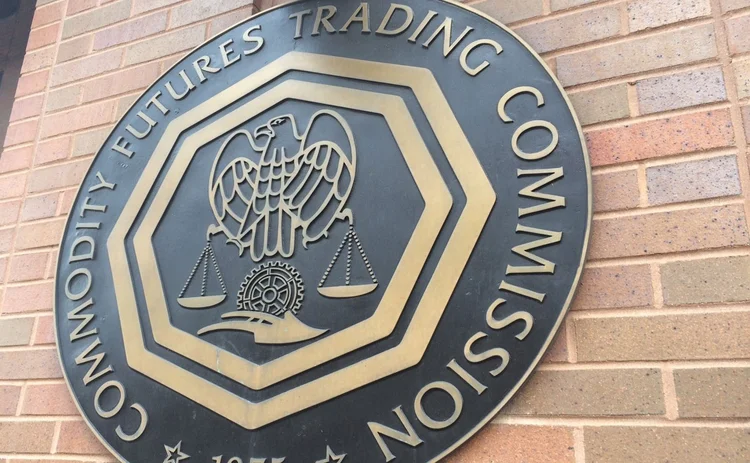CFTC's Budget Cut Constrains Crypto Oversight, Market Resiliency Activities
A higher budget, on the other hand, could bring in extra staff to monitor clearinghouses and fraud manipulation in crypto markets, says CFTC commissioner Quintenz.

CFTC commissioner Brian Quintenz, speaking at the Securities Industry and Financial Markets Association (Sifma) annual operations conference in Phoenix, said a small increase in the agency’s budget could significantly improve its ability to monitor the capital markets, but further budget cuts will hamper its mission.
“The CFTC is making the best use of the resources it has been given. … However, without sounding alarmist, I do want to express my genuine concern that the recent budget cuts hinder the CFTC’s ability to meet its core missions,” Quintenz said. “Staff’s ability to conduct regular risk, compliance, and cybersecurity examinations will be curtailed; enforcement efforts to police fraud and manipulation—particularly in the cryptocurrency spot markets—will be strained.”
The regulator sought a budget of $281.5 million for 2018 but was only granted $249 million in the appropriations bill approved in late March. This represents about a $1 million cut to the agency’s previous year’s outlay.
Quintenz said the CFTC has identified three areas where a budget increase would bring more efficiency: cultivating a more econometric focus and higher funding for the office of the chief economist to hire more quants, a focus on examinations and stress testing for clearinghouses, and oversight of financial technology, particularly in the crypto market.
“An increase in funding for the office of chief economist would promote the agency’s use of sophisticated econometric and quantitative analyses necessary to model risk, conduct stress tests, and assess the impact of regulations,” said Quintenz. “The transformational challenges associated with fintech advancements and oversight of the burgeoning cryptocurrency markets require a forward-looking regulator with in-house fintech expertise and an ability to proactively engage with innovators. A small funding increase would build on the chairman’s highly impactful LabCFTC initiative.”
He added that counterparty risk has increased, which has resulted in “the supersizing of clearinghouses,” making it more important the agency ensures each clearinghouse is regularly examined for liquidity, risk management, and cybersecurity. LabCFTC is the agency’s outreach to the fintech sector launched last year.
The CFTC, Quintenz noted, will do its best with its current budget and that a review of its departments will create efficiencies, but hopes to receive a higher allocation in the next year.
Quintenz laid the blame for the agency’s budget cuts on the previous administration’s mismanagement that he said eroded trust in the CFTC. He cited lease agreements on office expansions that were not appropriate for government agencies, unnecessary staff furloughs in 2013, and failed union negotiations in 2016 as issues that cast doubt on its fiscal responsibility.
“I believe that the CFTC’s grim budget situation today is largely attributable to the irresponsible stewardship of the prior administration. Under the leadership of Chairman Gary Gensler and Chairman Timothy Massad, years of unrealistic budget requests, fiscal mismanagement, and political gamesmanship with Capitol Hill damaged the agency’s reputation and credibility with appropriators who, when now forced to pick and choose between competing priorities, remember those past affronts like yesterday,” he said.
Despite budget issues, the CFTC maintains it will ensure its regulatory mission is strong. Quintenz said he and his counterparts at the Securities and Exchange Commission have discussed harmonizing rules and are in the process of identifying which areas can be coordinated. This move, he said, will not only improve regulatory efficiency but will make it easier for reporting firms to meet requirements.
Only users who have a paid subscription or are part of a corporate subscription are able to print or copy content.
To access these options, along with all other subscription benefits, please contact info@waterstechnology.com or view our subscription options here: https://subscriptions.waterstechnology.com/subscribe
You are currently unable to print this content. Please contact info@waterstechnology.com to find out more.
You are currently unable to copy this content. Please contact info@waterstechnology.com to find out more.
Copyright Infopro Digital Limited. All rights reserved.
As outlined in our terms and conditions, https://www.infopro-digital.com/terms-and-conditions/subscriptions/ (point 2.4), printing is limited to a single copy.
If you would like to purchase additional rights please email info@waterstechnology.com
Copyright Infopro Digital Limited. All rights reserved.
You may share this content using our article tools. As outlined in our terms and conditions, https://www.infopro-digital.com/terms-and-conditions/subscriptions/ (clause 2.4), an Authorised User may only make one copy of the materials for their own personal use. You must also comply with the restrictions in clause 2.5.
If you would like to purchase additional rights please email info@waterstechnology.com
More on Regulation
Banks split over AI risk management
Model teams hold the reins, but some argue AI is an enterprise risk.
New EBA taxonomy could help banks track AI risk
Extra loss flags will allow banks to track transversal risks like geopolitics and AI, say experts.
Risk managers question US reach of Dora third-party list
Some EU subsidiaries included, but regulator control over cloud providers could still be limited.
Where have four years of Cusip legal drama gone?
The IMD Wrap: The antitrust case against Cusip Global Services has been a long, winding road. Reb recaps what you might have missed.
2026 will be the year agent armies awaken
Waters Wrap: Several AI experts have recently said that the next 12 months will see significant progress for agentic AI. Are capital markets firms ready for this shift from generative AI to agents?
Despite regulatory thaw in US, major questions remain globally for 2026
From crypto and tokenization to the CAT to consolidated tapes to T+1’s advancement, the regulatory space will be front and center in the New Year.
Will overnight trading in equity markets expand next year? It’s complicated.
The potential for expanded overnight trading in US equity markets sparked debate this year, whether people liked it or not.
Waters Wavelength Ep. 342: LexisNexis Risk Solutions’ Sophie Lagouanelle
This week, Sophie Lagouanelle, chief product officer for financial crime compliance at LNRS, joins the podcast to discuss trends in the space moving into 2026.







